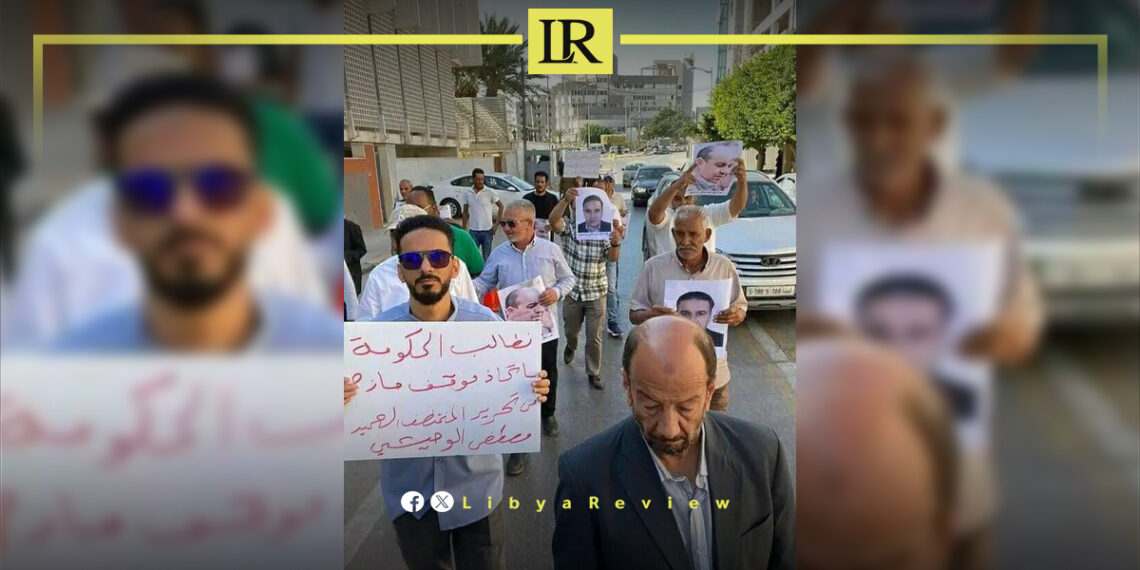On Tuesday, protests erupted in Tripoli as Libyans gathered outside the interim Prime Minister of the Government of National Unity (GNU) Abdul Hamid Dbaiba’s office to demand the release and safe return of Brigadier General Mustafa Al-Wahishi, the Director of Security for the General Intelligence Service, who was abducted last week.
Al-Wahishi disappeared on Wednesday night around 9 p.m. while on his way home from his office, sparking widespread public concern over his safety and the apparent lack of government response.
A video statement from a group called the “Zintan Community Residents of Tripoli” criticized the GNU Government for what they described as an insufficient response to Al-Wahishi’s disappearance.
The group condemned the government’s failure to identify the kidnappers and demanded an emergency mobilization of all security forces to secure Al-Wahishi’s release. They warned that if action is not taken, they may seek support from international bodies to help locate him.
Al-Wahishi’s abduction appears to be tied to his involvement in high-stakes investigations affecting national security. According to Libyan intelligence sources, he had been overseeing several sensitive cases, some of which are currently under judicial review.
Reports suggest that his disappearance may be linked to a corruption investigation involving the National Oil Corporation (NOC), specifically a high-profile case regarding adulterated fuel supplies. This case had previously implicated Imad Bin Rajab, a former senior official in the NOC’s International Marketing Department, who fled to Turkey after being sentenced to 30 months in prison on charges linked to the scandal.
Libya’s security landscape remains fraught with challenges as various armed groups continue to wield significant influence, making public officials vulnerable to kidnappings, especially those engaged in politically sensitive work. Al-Wahishi’s abduction has raised fresh concerns over the power of non-state actors in Tripoli and the risks faced by officials involved in anti-corruption and national security investigations.
The kidnapping underscores the complex security environment faced by Libya’s Government of National Unity, which struggles to maintain control amid widespread lawlessness. The abduction has prompted new calls for reforms within Libya’s intelligence and security sectors to protect public officials and stabilize governance.


